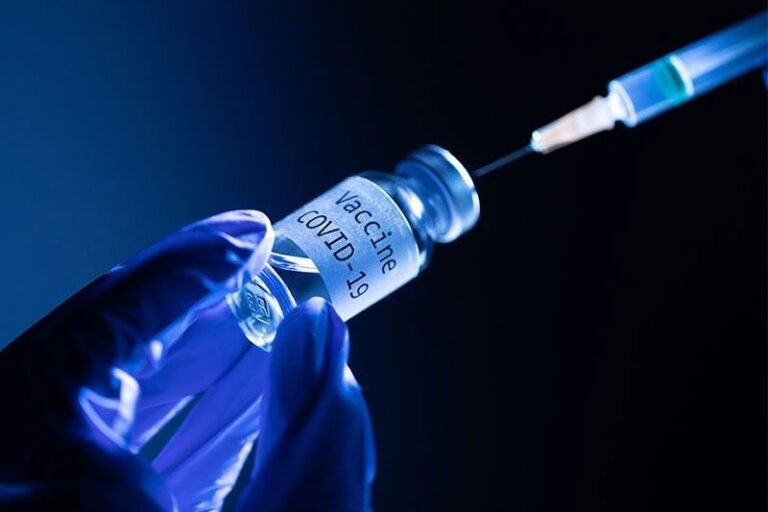
“People cannot feel safe just because they had the two doses. They still need to protect themselves.”
Philippine Daily Inquirer / July 04, 2021
The first half of 2021 is over, but dark clouds continue to hover on the horizon as new variants of the coronavirus have prompted several countries to close borders anew and impose another round of lockdowns. Should the new variants, particularly B.1.617.2 or the Delta variant, spread in the Philippines, it could further delay the reopening of sectors of the much-battered economy.
An expert group convened by the World Health Organization (WHO) has labeled the new variants using the letters of the Greek alphabet: Alpha, initially detected in the United Kingdom; Beta, initially detected in South Africa; Gamma, initially detected in travelers from Brazil at an airport in Japan; and Delta, initially detected in India. Among these variants, experts have dubbed the Delta variant as a “variant of concern” and is considered a major threat because it is more infectious and pathogenic than SARS-CoV-2, the virus that causes COVID-19.
“The transmissibility is unquestionably greater than the wild-type SARS-CoV-2, as well as the Alpha variant. It is associated with an increased disease severity, as reflected by hospitalization risk, compared to Alpha,” Dr. Anthony Fauci, chief medical adviser on COVID-19 to President Joe Biden, told a White House briefing last June 22.
At least two studies, one conducted by German scientists and published on the bioRxiv preprint server for biology and the other by researchers at the Gujarat Biotechnology Research Centre, said the Delta variant has the ability to evade antibodies made by the body after COVID-19 infection, or vaccination. The “immune escape” happened, according to the Gujarat study, because of changes in the Delta variant, such as two missing amino acids and a mutation on the spike protein of the virus. In other words, the variant didn’t match the copy of the virus the antibodies had in their memory. This development bucks the expectation that a person, once infected by COVID-19, has less chances of a second infection due to antibodies developed.
There is good news, however. Fauci said three vaccines—Pfizer, Moderna, and Johnson & Johnson’s Janssen, all authorized for use in the US—are effective against the Delta variant. “We know our vaccines work against this variant,” Dr. Rochelle Walensky, director of the Centers for Disease Control and Prevention, said in the same White House briefing last month. “However, this variant represents a set of mutations that could lead to future mutations that evade our vaccine. And that’s why it’s more important than ever to get vaccinated now, to stop the chain of infection, the chain of mutations that could lead to a more dangerous variant.”
The Delta variant has caused about 10 percent of new COVID-19 infections in the US as well as new outbreaks in the United Kingdom and Australia. Indonesia reported that its latest surge of infections has accelerated much faster than what was seen early this year, with the country’s Red Cross warning that the Delta variant is pushing it “closer to the edge of a COVID-19 catastrophe.” Even Israel, which implemented the world’s fastest vaccination program, reported a surge due to the Delta variant and had to reimpose mask-wearing outdoors last month.
What about the Philippines, where not even five percent of the population has been vaccinated since the government rolled out the vaccination program in March? No local case of the Delta variant reported—so far. But, as Inquirer columnist Gideon Lasco wrote last Friday, “our limited genomic surveillance capabilities mean that we cannot be too sure.” The Department of Health (DOH) has earlier reported a total of 17 Delta variant cases, all of them returning overseas Filipinos. Of these cases, 15 have recovered, one has died, and one was still ill per the DOH report last June 22.
Presidential adviser for entrepreneurship and Go Negosyo founder Joey Concepcion said the government must continue being extra cautious in opening up its borders to countries that have cases of the Delta variant, “because if that penetrates the Philippines, then we will definitely not be able to achieve a merry Christmas.” He also urged the government to ramp up vaccination, which remains the most effective way to protect the public.
Full vaccination, however, won’t stop community transmissions especially since, as the WHO noted, a large portion of the world remains unvaccinated. Dr. Mariangela Simao, WHO assistant director-general for access to medicines and health products, said even people who have received the vaccines should continue wearing masks, maintain social distance, observe hand hygiene, and avoid poorly ventilated places: “People cannot feel safe just because they had the two doses. They still need to protect themselves.”
And with the Delta variant emerging as the dominant variant of COVID-19 worldwide, the WHO’s strong advice is: “Play it safe.”